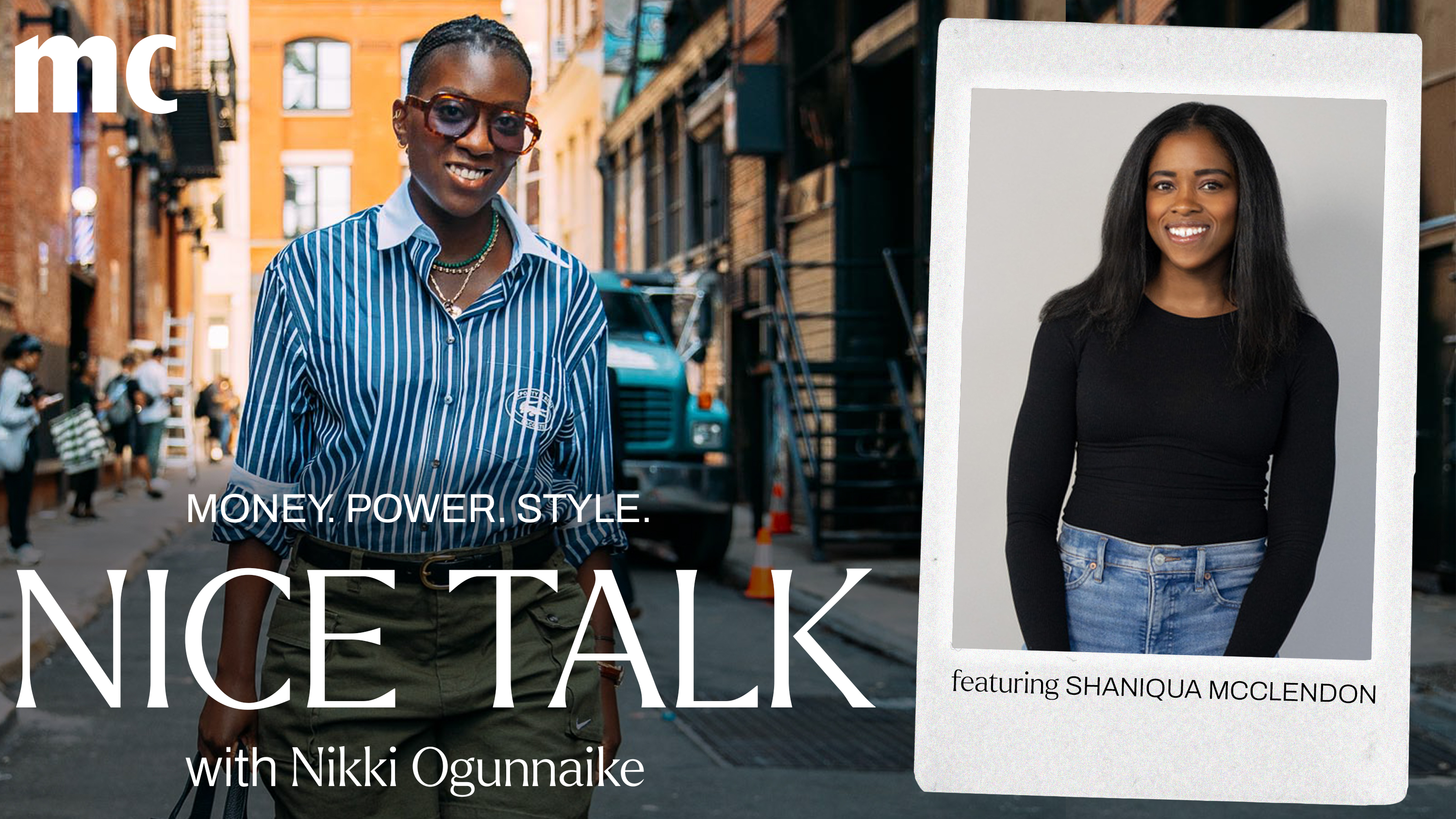
There's no such thing as an "off-year" election, if you ask Shaniqua McClendon. The VP of Political Strategy at Crooked Media prefers to call elections like the ones happening this year "odd-year" elections.
"I feel like there's no off years," McClendon says on the latest episode of "Nice Talk". "These super down-ballot races matter a lot, and that's typically what's happening in an odd year."
The elections culminating on Tuesday, November 4—because, remember, early voting is already happening in many places—do include some highly publicized races. There's the gubernatorial elections in New Jersey and Virginia, the mayoral race in New York City, and Proposition 50 in California. But voters in various states will also be electing state supreme court justices, mayors, and legislators, as well as voting on ballot measures.
"These elections can literally impact how much money you have each month after you pay all of your bills," McClendon tells Marie Claire editor-in-chief Nikki Ogunnaike. "Our courts are important. A lot of decisions run through them at the state level. And so if you have a legislature or a governor who's doing things that are not great, the courts are supposed to be a check there."
To anyone who doesn't participate because they feel like their vote doesn't matter, McClendon—who leads Crooked Media's Vote Save America initiative—has a response.
"For every one person who says, 'My vote doesn't matter,' there are millions of people who have said that, and when you put all of those people together, that starts to have an impact on who is in office and who's not in office."
A post shared by Shaniqua (@shaniquam)
A photo posted by on
This way of thinking about voting comes into play particularly in odd-year elections.
Get exclusive access to fashion and beauty trends, hot-off-the-press celebrity news, and more.
"Fewer people vote in odd years," McClendon explains. "I wish as many people who vote in presidentials voted in midterms and odd-year elections, but it actually means that fewer people can have a lot more impact on the outcome of the election ... Everyone's vote counts equally, but when they don't show up, you have more power. Or if you don't show up, the other people who showed up have more power."
And on top of these statewide and local elections having a direct effect on citizen's lives, they have an effect on the upcoming federal elections in 2026.
"From more of a political and less of a civic engagement standpoint, the outcomes of these odd-year elections give a lot of narrative to what goes into the midterms," the former policy advisor says. "We know that the House of Representatives is what Democrats feel like they can take next year to start holding Donald Trump accountable."
She continues, "But when people start paying attention for these 2025 elections, if Democrats lose, that starts to create a prophecy, if you will, where, Okay, if they didn't win these gubernatorial races, then they probably won't win these House seats, so I'm not going to donate to them, I'm not going to volunteer for them, and then it just fulfills the self-fulfilling prophecy."
For more from McClendon—including her advice for making an impact outside of voting and how to stay on top of the news without getting exhausted—check out this week’s installment of Nice Talk. The episode is available everywhere you listen to podcasts.
Lia Beck is a writer living in Brooklyn, NY, who covers entertainment, celebrity, and lifestyle. The former celebrity news editor at Bustle, she has also written for Refinery29, Hello Giggles, Cosmopolitan, PEOPLE, Entertainment Weekly, and more.